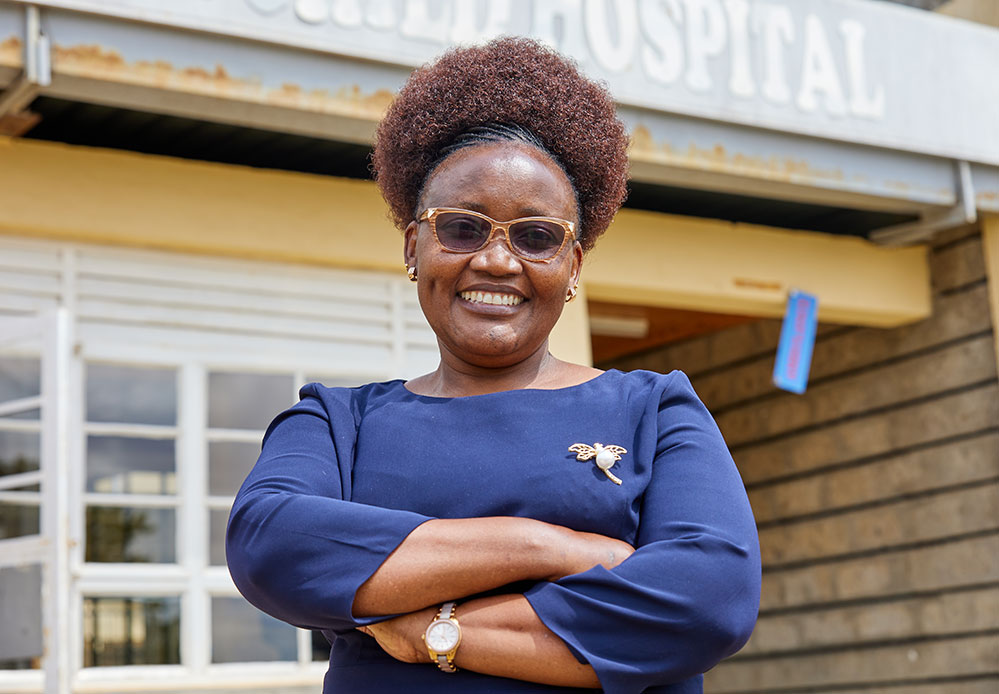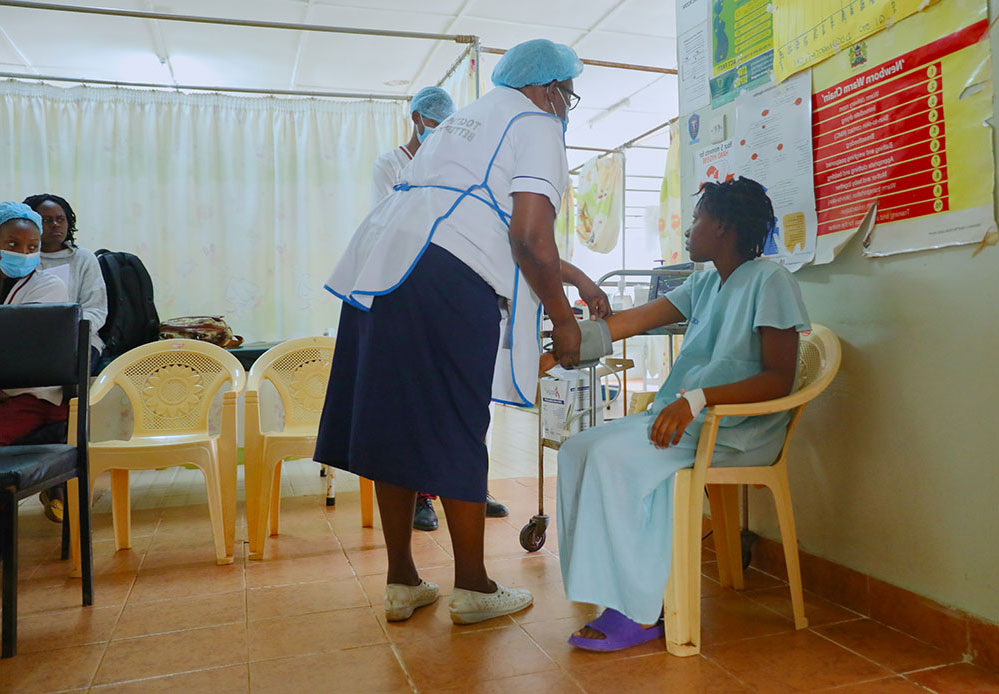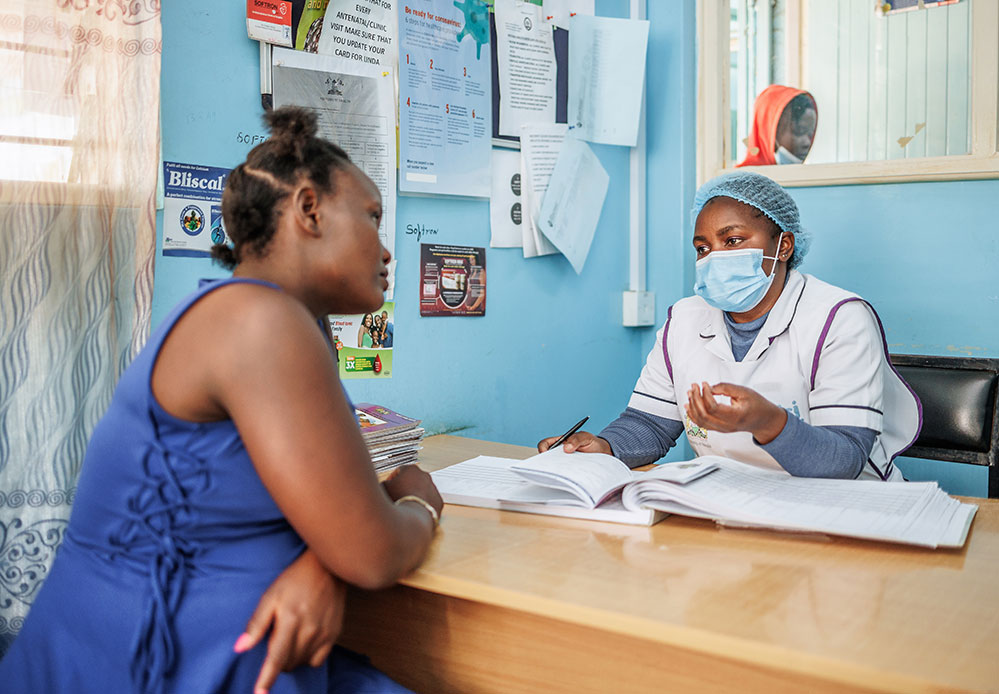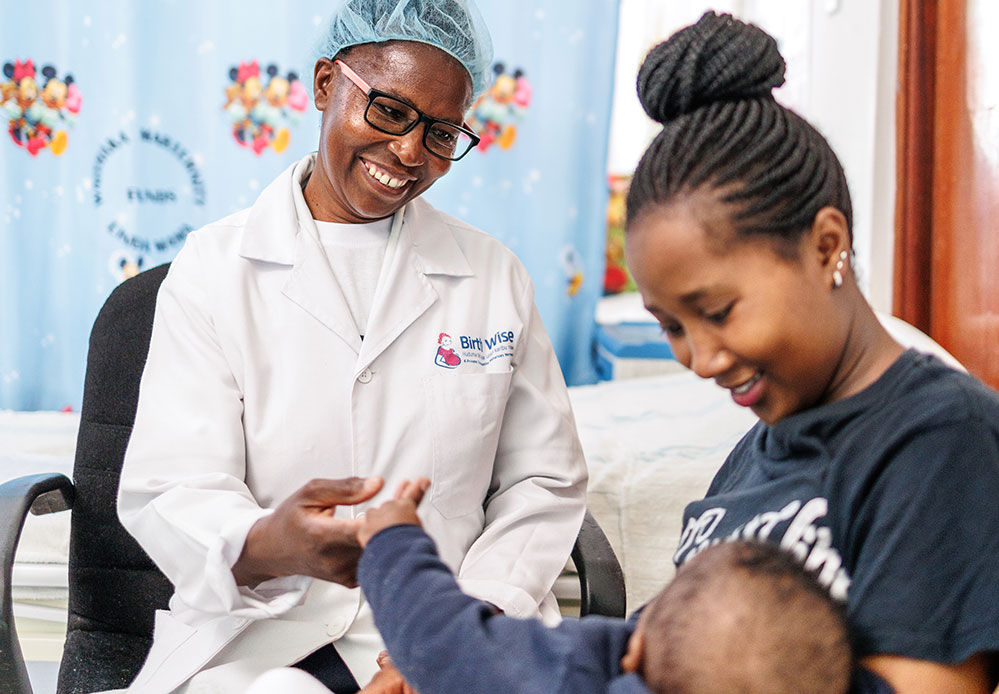Nurses manage nearly all deliveries in Kenya’s public health system, yet many lack the lifesaving skills and knowledge to recognize or administer vital support for widely-preventable complications. Despite numerous efforts at classroom-based training programs in Kenya over the last ten years, frontline providers consistently score ~60% on emergency and obstetric skills. Knowledge gaps and disrespectful care continues to be a major driver of poor outcomes among mothers and infants.
of women in Kenya do not achieve 4+ prenatal care visits
don’t receive a postpartum checkup
of emergency cases are referrals from other facilities
Jacaranda is aligned with the WHO Quality of Care Framework which sees quality through the dual lens of care provision and care experience. Our package of solutions is designed to improve both provision and experience by building the capacity of the frontline nurse workforce while amplifying women’s voices to drive accountability towards better services.

Jacaranda’s MENTORS program supports respectful, best practice care by offering continuous training within the maternal care wards. Government nurse ‘champions’ are empowered to routinely mentor their peers in facilities with lifesaving emergency care skills, with demonstrated impact on knowledge retention, performance, respectful care and outcomes.


After every prenatal care visit, PROMPTS asks mothers whether the appropriate clinical steps were taken. This feedback helps health system managers track and standardize the clinical quality of prenatal care across the facilities they manage, including clinical, informational, and systemic gaps like medicine stock-outs or equipment shortages.

improved nurses’ skills in handling emergencies
PROMPTS mothers have reported on the clinical quality of their prenatal check-up
PROMPTS mothers have shared feedback on respectful care in facilities
Find Us
788 Jabavu Rd Nairobi Nairobi County Kenya
Disclaimer
This website discusses pregnancy and motherhood. While we use the term “mother” to mirror the language of the community we are collaborating with, we also acknowledge that not all pregnant people identify as “mothers.” We would like to recognize that pregnancy and motherhood can be experienced by people of all genders.